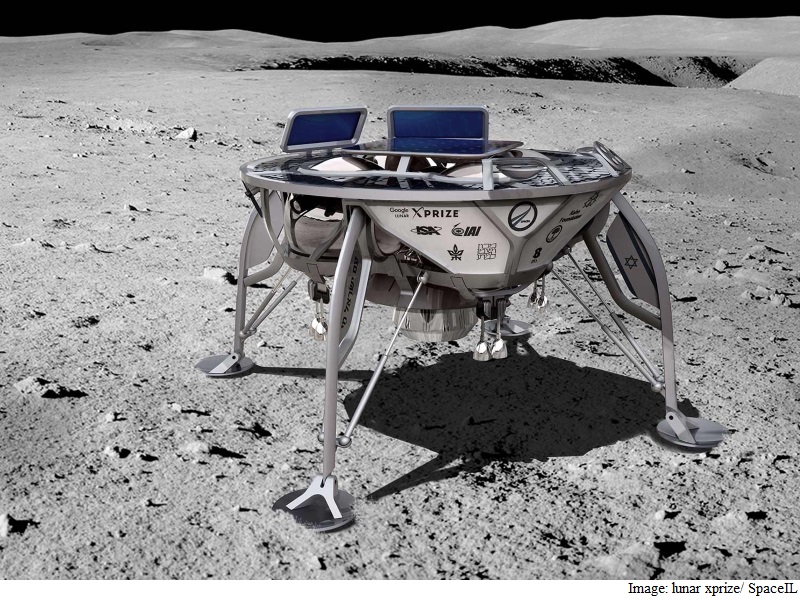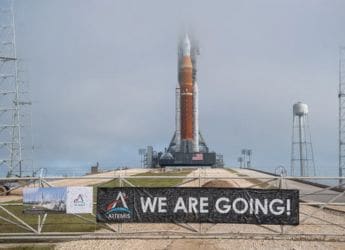- Home
- Science
- Science News
- Israeli Team Signs First Launch Deal in Google Moon Race
Israeli Team Signs First Launch Deal in Google Moon Race

With the deadline to win a $30 million (roughly Rs. 195 crores) first-place prize just two years off, pressure is mounting on the 16 rivals from around the world hoping to complete a privately funded moon landing.
Silicon Valley's Moon Express announced a week ago that it had signed a contract with Lockheed Martin-backed Rocket Lab. But Israel's SpaceIL is the first team to have a launch agreement reviewed, verified and accepted by XPRIZE, the group overseeing the contest.
"The magnitude of this achievement cannot be overstated," said XPRIZE President Bob Weiss. "This is the official milestone that the race is on ... They've lit the fuse, as it were, for their competitive effort."
The key hurdle was finding an affordable ride to outer space without government funding, said Eran Privman, CEO of SpaceIL.
Because his team's spacecraft is much smaller than most competitors - it looks like a robotic, four-legged table, about 1.5 meters tall and wide - the SpaceX Falcon 9 launcher can carry 20 small satellites whose fares will help cover costs, Privman said.
"Other teams are trying to find such solutions," he said.
SpaceX is a private company owned and operated by technology entrepreneur Elon Musk.
Much work remains. SpaceIL must manufacture hardware to fit the rocket and only then can it be shipped to the United States, Privman said.
The mission is scheduled for late 2017, just before the contest deadline. Once exiting the rocket in space, the Israeli craft will make its journey to the moon.
To win, a privately funded team must place an unmanned spacecraft on the moon's surface that can explore 500 meters and transmit high-definition video and images back to earth.
© Thomson Reuters 2015
Catch the latest from the Consumer Electronics Show on Gadgets 360, at our CES 2026 hub.
Related Stories
- Samsung Galaxy Unpacked 2025
- ChatGPT
- Redmi Note 14 Pro+
- iPhone 16
- Apple Vision Pro
- Oneplus 12
- OnePlus Nord CE 3 Lite 5G
- iPhone 13
- Xiaomi 14 Pro
- Oppo Find N3
- Tecno Spark Go (2023)
- Realme V30
- Best Phones Under 25000
- Samsung Galaxy S24 Series
- Cryptocurrency
- iQoo 12
- Samsung Galaxy S24 Ultra
- Giottus
- Samsung Galaxy Z Flip 5
- Apple 'Scary Fast'
- Housefull 5
- GoPro Hero 12 Black Review
- Invincible Season 2
- JioGlass
- HD Ready TV
- Laptop Under 50000
- Smartwatch Under 10000
- Latest Mobile Phones
- Compare Phones
- Tecno Spark Go 3
- iQOO Z11 Turbo
- OPPO A6c
- Samsung Galaxy A07 5G
- Vivo Y500i
- OnePlus Turbo 6V
- OnePlus Turbo 6
- Itel Zeno 20 Max
- Lenovo Yoga Slim 7x (2025)
- Lenovo Yoga Slim 7a
- Lenovo Idea Tab Plus
- Realme Pad 3
- Garmin Quatix 8 Pro
- NoiseFit Pro 6R
- Haier H5E Series
- Acerpure Nitro Z Series 100-inch QLED TV
- Asus ROG Ally
- Nintendo Switch Lite
- Haier 1.6 Ton 5 Star Inverter Split AC (HSU19G-MZAID5BN-INV)
- Haier 1.6 Ton 5 Star Inverter Split AC (HSU19G-MZAIM5BN-INV)
















